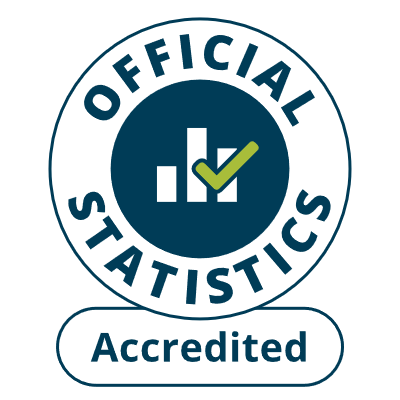
 Destination of Welsh domiciled qualifiers by activity and mode
Destination of Welsh domiciled qualifiers by activity and mode
Archived (English only) – No longer updated.
None
|
||||||||||||||||||||||||||||||||||||||||||||||||||||||||||||||||||||||||||||||||||||||||||||||||||||||||||||
Metadata
EDUC0044: Destination of Welsh domiciled qualifers by activity
ELLS Welsh Assembly Government
Last update:October 2012
Was added to StatsWales: October 2012
Next Update: No longer updated.
Will be added to StatsWales by: September 2013 (provisional)
Source: HESA
Contact: post16ed.Stats@wales.gsi.gov.uk
NOTES
The Destination of Leavers from Higher Education (DLHE) survey was introduced by the Higher Education Statistics Agency (HESA) for qualifiers from the 2002/03 academic year onwards. The survey replaces the former First Destination Supplement with coverage increased to include part-time students and more detailed questions on the destinations of leavers.The survey only provides a snapshot at about six months after graduation and does not reflect long term outcomes of HE qualifiers.
Further information on the destinations of qualifiers from across the UK is available in the HESA publication Destination of Leavers from Higher Education.
Coverage
The HESA Destinations of Leavers from Higher Education target population for 2010/11 contains all United Kingdom (UK) and European Union (EU) domiciled students reported to HESA for the reporting period 1 August 2010 to 31 July 2011 as obtaining relevant qualifications and whose study was full-time or part-time (including sandwich students for full time and those writing-up theses for part time).
Relevant qualifications for inclusion in the DLHE return are postgraduate degrees, postgraduate diplomas and certificates, Postgraduate Certificates in Education (PGCE), first degrees (excludes intercalated degrees), Diplomas of Higher Education (DipHE), Certificates of Higher Education (CertHE), foundation degrees, Higher National Diplomas (HND) or Higher National Certificates (HNC). The population for the DLHE return does not necessarily represent the full cohort graduating during the reporting period; examples of those excluded are professional qualifications (e.g. associate membership or membership of a body such as the Institute of Bankers) and undergraduate diplomas and certificates (other than foundation degrees, HND, DipHE, HNC and CertHE).
The reference dates for this DLHE return were 20 April 2011 (if the leaver obtained the qualification between 1 August 2010 and 31 December 2010) and 11 January 2012 (if the leaver obtained the qualification between 1 January 2011 and 31 July 2011).
Rounding
The presentation of figures in this table follow the principles of the current HESA rounding strategy. The strategy is intended to prevent the disclosure of personal information about any individual. A summary of the strategy is as follows:
1. Numbers 0, 1, 2 are rounded to 0 and are represented as '*'.
2. All other numbers are rounded to the nearest 5.
So for example 3 is represented as 5, 22 is represented as 20, 3286 is represented as 3285 while 20, 55, 3510 remain unchanged.
Total figures are also subject to this rounding methodology; the consequence of which is that the sum of numbers in each row or column may not match the total shown precisely.
Percentage less than 0.5 per cent are represented by '-'.
Response rates
Was added to StatsWales: October 2012
Next Update: No longer updated.
Will be added to StatsWales by: September 2013 (provisional)
Source: HESA
Contact: post16ed.Stats@wales.gsi.gov.uk
NOTES
The Destination of Leavers from Higher Education (DLHE) survey was introduced by the Higher Education Statistics Agency (HESA) for qualifiers from the 2002/03 academic year onwards. The survey replaces the former First Destination Supplement with coverage increased to include part-time students and more detailed questions on the destinations of leavers.The survey only provides a snapshot at about six months after graduation and does not reflect long term outcomes of HE qualifiers.
Further information on the destinations of qualifiers from across the UK is available in the HESA publication Destination of Leavers from Higher Education.
Coverage
The HESA Destinations of Leavers from Higher Education target population for 2010/11 contains all United Kingdom (UK) and European Union (EU) domiciled students reported to HESA for the reporting period 1 August 2010 to 31 July 2011 as obtaining relevant qualifications and whose study was full-time or part-time (including sandwich students for full time and those writing-up theses for part time).
Relevant qualifications for inclusion in the DLHE return are postgraduate degrees, postgraduate diplomas and certificates, Postgraduate Certificates in Education (PGCE), first degrees (excludes intercalated degrees), Diplomas of Higher Education (DipHE), Certificates of Higher Education (CertHE), foundation degrees, Higher National Diplomas (HND) or Higher National Certificates (HNC). The population for the DLHE return does not necessarily represent the full cohort graduating during the reporting period; examples of those excluded are professional qualifications (e.g. associate membership or membership of a body such as the Institute of Bankers) and undergraduate diplomas and certificates (other than foundation degrees, HND, DipHE, HNC and CertHE).
The reference dates for this DLHE return were 20 April 2011 (if the leaver obtained the qualification between 1 August 2010 and 31 December 2010) and 11 January 2012 (if the leaver obtained the qualification between 1 January 2011 and 31 July 2011).
Rounding
The presentation of figures in this table follow the principles of the current HESA rounding strategy. The strategy is intended to prevent the disclosure of personal information about any individual. A summary of the strategy is as follows:
1. Numbers 0, 1, 2 are rounded to 0 and are represented as '*'.
2. All other numbers are rounded to the nearest 5.
So for example 3 is represented as 5, 22 is represented as 20, 3286 is represented as 3285 while 20, 55, 3510 remain unchanged.
Total figures are also subject to this rounding methodology; the consequence of which is that the sum of numbers in each row or column may not match the total shown precisely.
Percentage less than 0.5 per cent are represented by '-'.
Response rates







 All
All